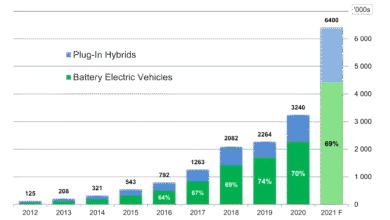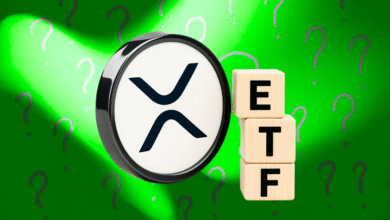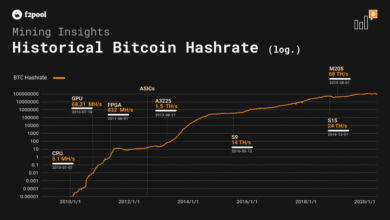Pavel Durov Defense Challenges French Prosecutors’ Case

In the midst of a contentious legal atmosphere, Pavel Durov’s defense emerges as a formidable force against the allegations from French prosecutors in what is being labeled as a pivotal Telegram legal battle. His trial highlights serious issues within the prosecution’s framework, with his attorney, Christophe Ingrain, vehemently arguing that the case is riddled with procedural errors and unfounded claims regarding Telegram’s involvement in illicit activities. Durov’s alleged complicity, according to the defense, lacks any substantial evidence of direct wrongdoing, challenging the narrative presented by law enforcement. As scrutiny on the French prosecutors’ Telegram case intensifies, Ingrain emphasizes that the accusations are built on shaky ground, particularly noting the failure to utilize Telegram’s official communication channel as outlined in EU regulations. Furthermore, Durov’s commitment to compliance with the law is underscored by Telegram’s proactive stance in combating crime on its platform, showcasing a cooperative effort that contrasts sharply with the prosecution’s portrayal.
Exploring the intricacies of Pavel Durov’s legal defense sheds light on broader issues within the tech and legal realms. The unfolding scenario surrounding Durov, Telegram’s visionary co-founder, serves as a critical examination of the interplay between digital communication platforms and judicial expectations. As the trial proceeds, alternative perspectives on Durov’s actions and Telegram’s compliance efforts are essential to understanding the dynamics at play. The accusations brought forth by authorities raise significant questions about the responsibilities of digital platforms in facilitating transparency and accountability. Ultimately, the ongoing Durov judicial control case highlights the urgent need for clarity in the legal standards applied to modern communication technologies.
Pavel Durov’s Defense Strategy Explained
Pavel Durov’s defense strategy has become a focal point in the ongoing legal battle regarding the allegations levied by French prosecutors. His attorney, Christophe Ingrain, has meticulously dismantled the prosecution’s claims by highlighting significant procedural missteps. For instance, Ingrain emphasizes the lack of direct evidence linking Durov to any wrongdoing, asserting instead that the claim of his complicity is unfounded. This legal defense not only advocates for Durov’s innocence but also sheds light on the flawed processes taken by the prosecution, which have raised questions about judicial integrity and fairness in the trial.
In addition, Ingrain’s arguments assert that complicity cannot simply be based on inaction, challenging the notion that Durov’s failure to intervene in criminal activity on Telegram equates to guilt. The defense’s focus on procedural errors—with law enforcement failing to adhere to the EU Digital Services Act regarding valid communication channels—strengthens their case considerably. Such a blow to the prosecution casts doubt on their ability to hold Durov accountable and raises crucial questions about the legality of evidence presented in this high-stakes Telegram legal battle.
Understanding the Implications of the Telegram Legal Battle
The implications of the Telegram legal battle extend beyond Pavel Durov and the immediate charges against him. With the rise of digital communication platforms, issues surrounding compliance with law and arresting judicial oversight have come to the forefront. Prosecutors targeting platforms like Telegram can set a precedent that could empower other governments to impose stringent regulations and judicial control over digital communications, potentially stifling freedom of speech and privacy. As Durov faces serious allegations that could lead to significant penalties, the outcome of this trial is poised to influence regulatory environments across multiple jurisdictions.
Moreover, the Baldwin v. Durov case highlights ongoing tensions between digital privacy advocates and law enforcement. With Telegram’s robust functionalities obscuring illegal activities, prosecutors may need to rethink how they approach compliance with law issues regarding tech companies. As the trial unfolds, the debates it sparks will likely bring to light how digital platforms can operate within to balance their ethical responsibilities while also cooperating with legal demands. Durov’s ongoing trial signals a critical moment in the ongoing discourse on the relationship between technology, law, and users’ rights.
Key Insights into the Pavel Durov Trial
The Pavel Durov trial is a pivotal event that has captured the attention of both legal analysts and tech enthusiasts. This case, which involves French prosecutors charging Durov with indirect involvement in criminal activities on the Telegram platform, raises numerous questions about accountability in the digital age. Late challenges by his defense team have exposed weaknesses in the prosecution’s arguments, suggesting that the method of holding Durov accountable does not adequately consider the complexities of digital interactions and communications. This raises vital debates about the standards for digital platform operators when facing legal scrutiny.
As the trial progresses, key insights into the operation of tech platforms under judicial control emerge. Durov’s defense emphasizes that responsibly managing user-generated content while ensuring compliance with law is not just a matter of liability, but also of digital ethics. The struggle for a balanced perspective between facilitating user privacy and cooperating with law enforcement is at the heart of this case, underscoring the challenges tech leaders face as they navigate rapidly evolving legal landscapes. A verdict in the Durov trial could significantly impact other platform owners globally and their approach to similar legal challenges.
French Prosecutors’ Case Against Telegram Under Scrutiny
The legal maneuvers executed by French prosecutors against Telegram and Pavel Durov have come under intense scrutiny as the trial progresses. Critics are questioning whether the charges against Durov demonstrate a genuine understanding of how digital communication operates, or if they reflect an outdated perspective on technological accountability. Ingrain’s defense has pointed out that many accusations are built on shaky grounds, articulating that the prosecution’s understanding of Telegram’s business model and user privacy features is fundamentally flawed.
Furthermore, this case draws attention to broader concerns surrounding how tech firms interact with government requests for data and user information. Durov’s assertion that Telegram cooperates with law enforcement is supported by evidence of account suspensions in response to illegal activities. However, the challenges in obtaining data due to privacy laws often complicate matters. The ongoing examination of the prosecutors’ case against Telegram thus poses significant implications for how digital platforms must engage with legal obligations while striving to protect users’ privacy, directly influencing ongoing discussions surrounding Durov’s trial.
The Impact of Digital Privacy on the Durov Judicial Control
Pavel Durov’s situation represents a critical crossroads in the conversation about digital privacy and judicial control. With Durov remaining under judicial control in Paris following his detention, observers are acutely aware of the potential ramifications for the wider landscape of digital communications. This intricate case highlights the precarious balance between maintaining user security and adhering to governmental demands for compliance with law enforcement requests. As the case unfolds, it defines the trajectory of how digital platforms will negotiate their roles within the judicial system.
Moreover, the implications of Durov’s judicial control underscore shifting perspectives on individual freedoms within the realm of digital communication. Proponents of digital rights argue that the case against Durov and Telegram could set a dangerous precedent for how tech companies might be shackled by government requests that infringe upon users’ rights to privacy. The outcome of this pivotal trial not only determines the fate of Pavel Durov but also builds a framework for future interactions between tech companies and legal entities focused on compliance and judicial oversight.
Examining Telegram’s Compliance with Law
In light of the legal battle surrounding Pavel Durov, an essential area of examination is Telegram’s compliance with law. The prosecution claims that Telegram has allowed for illicit activities to proliferate, implying that negligence equates to guilt. However, Durov’s defense counters that the platform actively implements measures to combat illegal activities, such as blocking millions of accounts. This narrative pushes back against claims of non-cooperation, showcasing that Telegram strives to adhere to legal norms while still respecting user privacy.
Ingrain’s defense further argues that adhering to legal and regulatory frameworks can be complex for a platform of Telegram’s scale, especially when faced with varying standards from different jurisdictions. This presents a unique challenge that necessitates a thoughtful approach to balance user protection with lawful compliance. The ongoing discussion about Telegram’s adherence to laws is a crucial contributor to the burgeoning narrative surrounding Durov’s trial, with its outcomes potentially triggering changes in compliance practices across similar tech platforms.
The Role of Digital Services Act in Durov’s Case
The influence of the Digital Services Act (DSA) is palpable in facilitating the arguments put forth during Pavel Durov’s trial. Durov’s defense team has underscored the failures made by French authorities in utilizing appropriate regulatory communication channels mandated by the DSA. By claiming that requests concerning Telegram’s operations did not follow these protocols, Ingrain has positioned the DSA as a cornerstone of defense against the prosecution’s accusations. This places the act at the forefront of discussions surrounding digital communication regulations.
Additionally, the DSA seeks to establish transparency and accountability among platforms, underscoring the importance of user safety while still holding tech companies responsible for content hosted on their services. The ramifications of Durov’s case could potentially impact how such laws are interpreted and enforced in future situations involving digital platforms. Depending on the outcome, it may set new standards for what constitutes proper compliance with law and responsibility for communication platforms navigating governmental requests.
Analyzing the Credibility of the French Prosecutors
The credibility of the French prosecutors involved in the case against Pavel Durov has come under scrutiny, particularly concerning how effectively they have presented their case. Critics argue that the inconsistencies and procedural faults identified by Durov’s defense team may undermine the prosecutors’ authority in the courtroom. Such vulnerabilities raise questions about our current legal system’s ability to effectively address crimes conducted via international digital platforms like Telegram.
Moreover, the state’s approach to prosecuting Durov shines a light on broader themes of judicial oversight and accountability in the digital landscape. If the prosecution cannot substantiate charges against Durov convincingly, it could result in significant shifts regarding how future cases involving digital platforms are pursued. The outcomes of such credibility assessments might inform policy decisions and shape law enforcement’s strategy in dealing with new-age technology, altering the dynamic between tech companies and regulatory frameworks in the long run.
Future Considerations for Telegram After Durov’s Trial
As the trial of Pavel Durov unfolds, the ramifications for Telegram as a digital service provider loom large. A guilty verdict could impose severe restrictions on the platform’s operational freedoms, altering how Telegram manages user data and interacts with law enforcement across different countries. Conversely, an acquittal could allow Telegram to affirm its status as a platform dedicated to safeguarding user privacy while still maintaining necessary compliance with legal requests. This case could ultimately determine the overall direction of Telegram in an increasingly scrutinized environment.
Furthermore, the aftermath of the Durov trial will likely encourage other tech companies to reevaluate their protocols regarding compliance and user dynamics amid legal challenges. As exhibited through Durov’s defenses, the necessity for platforms to actively collaborate with authorities while also protecting user privacy will remain a critical area of focus. The trial’s outcome will shape regulatory discussions and could stimulate further legal developments that redefine the parameters of platform responsibility in managing illegal content while maintaining users’ rights.
Frequently Asked Questions
What are the key aspects of Pavel Durov’s defense in the Telegram legal battle?
Pavel Durov’s defense team focuses on dismantling the French prosecutors’ case by highlighting major procedural errors and asserting that the charges against him lack substantial proof. They emphasize that allegations of complicity in illegal activities on Telegram are unfounded, arguing that actions deemed illegal do not imply Durov’s direct involvement.
How does Pavel Durov’s trial challenge the accusations from French prosecutors?
In Pavel Durov’s trial, his defense attorney, Christophe Ingrain, scrutinizes the accusations made by French prosecutors, arguing that their interpretation of complicity does not hold merit. Ingrain points out significant flaws in the procedure and stresses that there is no direct evidence linking Durov to the alleged criminal activities.
What procedural missteps have been identified in the French prosecutors’ Telegram case against Pavel Durov?
The procedural missteps in the French prosecutors’ Telegram case include the failure to utilize Telegram’s official communication channels as mandated by the EU Digital Services Act. This oversight has led Durov’s defense team to argue that the legal requests presented against him are invalid and challenge the legitimacy of the prosecution.
How is Telegram’s compliance with law described in the context of Pavel Durov’s defense?
Telegram’s compliance with legal requirements is highlighted in Pavel Durov’s defense. His attorney argues that Telegram actively collaborates with law enforcement, having blocked 21 million accounts since the beginning of 2024, including many in France. This demonstrates the company’s commitment to upholding the law and contradicts claims of non-cooperation.
What implications does Pavel Durov’s judicial control have on the ongoing legal proceedings?
Pavel Durov’s ongoing judicial control in Paris, following his detention in August 2024, raises serious concerns about his legal standing. The charges he faces could lead to a 10-year prison sentence and hefty fines, which heightens the stakes of his defense strategy against the claims made by French prosecutors.
| Key Point | Details |
|---|---|
| Legal Battle | Pavel Durov’s defense team challenges the French prosecutors’ case. |
| Prosecutors’ Faults | The defense exposes procedural missteps in the prosecution’s case. |
| Accusations | Charges relate to Telegram’s alleged involvement in criminal conspiracies. |
| Defense Argument | Ingrain states that complicity does not imply Durov’s inaction or direct involvement. |
| Procedural Mistakes | Prosecutors failed to use Telegram’s official communication channel, invalidating their requests. |
| Cooperation Claims | Durov’s team claims Telegram actively cooperates with authorities, blocking 21 million accounts. |
| Judicial Control | Durov remains under judicial control in Paris, facing potential 10-year prison term. |
Summary
Pavel Durov’s defense successfully highlights the flaws in the prosecution’s case, emphasizing the lack of evidence against him and procedural missteps by law enforcement. With these points, the defense aims to undermine the credibility of the charges brought forth by the French authorities and reinforce Telegram’s ongoing cooperation in combating illegal activities on its platform.




